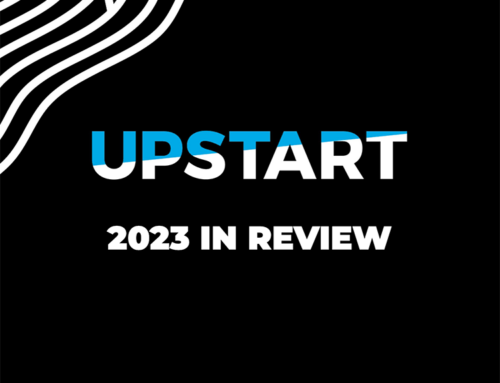November 22, 2016 | The NY Jewish Week
When Rabbi Sara Luria founded ImmerseNYC, which aims to make the mikvah a pluralistic, open and welcoming space for Jews across the spectrum, she needed some financial and logistical support.
A veteran community organizer, who had trained as a birth doula before entering the rabbinate, the Brooklyn native began her organization by working out of local coffee shops. “We had some of our most important conference calls in Starbucks,” she said.
Then Bikkurim stepped in.
The Manhattan-based incubator for “innovative Jewish nonprofit organizations” provided Rabbi Luria’s nascent organization with “a small stipend,” office space and advice on how to build a start-up. “We had a place to sit, and a computer,” the rabbi said. “It was the first stamp of approval.”
Rabbi Luria was lucky – she applied to only one organization for assistance, and was accepted.
Other Jewish start-ups have found the landscape to be complicated.
As the number of such Jewish entrepreneurial organizations has increased in recent years, their founders sometimes have encountered a variety of prominent national organizations to whom they could turn for their initial support. They include Bikkurim, Joshua Venture Group, UpStart and PresenTense.
Now, the four organizations have announced they are “consolidating” – the new organization’s self-description – into a single entity, UpStart, which will offer services and resources to entrepreneurs, funders and the wider Jewish community.
In establishing one address for people who are founding innovative Jewish educational and cultural organizations, UpStart will reduce a sometimes-time-consuming duplication and overlap of services, and funders’ dilemma of which of the similar organizations should receive their money, the organizations’ leaders said.
The four organizations, all of which formed in the last two decades, have helped establish more than 100 new Jewish initiatives, offering them seed money and modest grants as well consultancy in fundraising and other administrative fields. They have provided start-up support to such initiatives as Moishe House, Hazon, Footsteps and Matan, all of which have grown into major organizations that serve as leaders in their niche segments of the Jewish community.
The consolidation “is not going to change who’s going to get funding,” said Naomi Korb Weiss, CEO of the North America-based PresenTense Group. “This is much better for the field,” agreed Aliza Mazor, executive director of Bikkurim. “We are all small shops. This will give us a lot more capacity.”
Aaron Katler, CEO of UpStart, said his organization will further the work of the four organizations. “Jewish life has evolved in incredibly positive ways due in part to the success of our organizations, our program alumni, and our visionary partners,” he said.
Mazor and Lisa Lepson of Joshua Venture Group and will assume senior leadership roles at the new UpStart.
The four organizations began discussing the possibility of a merger a few years ago, Katler said, after some funders pointed out that “it wasn’t clear” what unique role each organization played.
“We came together now out of a shared commitment to build on that success and to expand our capacity to serve an evolving field,” Katler said. “Our vision is to provide innovators and organizations at nearly every stage with the services and resources they need to succeed.”
The desire to join forces “came organically from the organizations” themselves, Korb Weiss said. “It did not come from the funders.”
The UpStart board of directors will be composed of representatives of each organization.
During the next half year, until the merger is complete, each organization will continue to support its own programs. The merged UpStart will be based in the Bay Area, with offices in Chicago and New York City.
The four merged organizations, with a total budget of about $5 million, have 18 full-time and 12 part-time employees, all of whom will keep their jobs, Katler said. “This is not a merger of efficiencies [i.e., saving money] … this is much more a merger of effectiveness.”
By eliminating the overlap of services, the new UpStart will be able to leverage strength of each of the four organizations, and the pooled expertise of their 900 alumni, allowing it to offer its services and grants to a larger segment of the Jewish community, he said. “It makes the innovative network more efficient,” with all the participants’ expertise “under one roof.”
“It’s a huge win for the community,” said Jonathan Woocher, senior fellow at the Lippmann Kanfer Foundation for Living Torah and former president of the now-defunct Jewish Education Service of North America. “Each of these organizations was doing a piece of the work. They have so much more potential working together.”
The increased productivity of the new UpStart, rather than it replacing the four constituent organizations, will be most attractive to prospective funders, said Mark Charendoff, a veteran executive in the Jewish philanthropic world who now serves as president of the Maimonides Fund, a philanthropy whose focus is on Jewish identity and Israel.
“For a current funder, efficiency would be important, but I don’t think that’s going to attract new funders … I don’t think it makes a difference to funders to have two or four addresses to go to,” Charendoff said. “The promise of two plus two equaling five instead of four is what is going to get the attention of funders. The question is, can they achieve greater scale, reach more people and have a greater impact? By combining forces they can amplify their impact.”
The consolidation will be phased in over the next six months.
If it succeeds, Rabbi Luria said, the next generation of Jewish social entrepreneurs will be able to learn from the experience of the last generation.
And, she said, they won’t have to meet in Starbucks.
Our purpose is to enable entrepreneurs to bring bold Jewish ideas to light. We help them reach Up to people in new ways that are meaningful, more inclusive, and create a brighter future for our Jewish community and the world we share.




